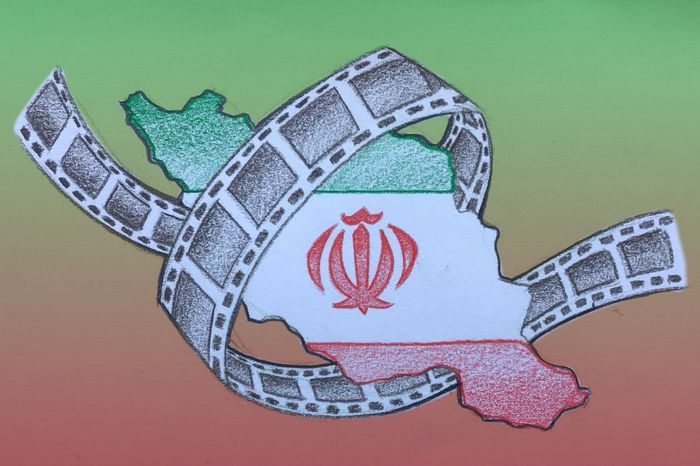Global Frames: Brazil
Louis Gentle unpacks how Brazilian cinema has moved beyond its exoticized origins in classical Hollywood

In the first half of the 20th century, cinematic representations of Brazil were largely reduced to the exotic dancer and the fruit hat. The popular tradition of derivative musical comedies known as ‘Chanchadas’ (translating loosely to ‘cultural trash’) pandered to a whitewashed and fetishized American popular imagination. The songs are admittedly very catchy (look for Carmen Miranda on YouTube and you’ll see what I mean) but did little to capture any sense of cultural authenticity or the lived experience of the Brazilian people.
Much more interesting is the reactionary work of the sixties: combining the political charge of Italian neorealism with the iconoclasm of the French New Wave, the Cinema Novo movement responded to what it saw as its own ‘cultural prostitution’ with defiant nationalism and polemic social commentary. Glauber Rocha, Novo director and figurehead of the movement, demonstrates both in his Western Black God, White Devil — my starting pick from the best of Brazilian cinema.
Black God, White Devil (1964)
During another drought in the sun-scorched sertão (Brazilian backcountry), farmhand Manoel kills his boss when he cheats him of his wages and flees with his wife Rosa. Outlawed, the pair wander through a desolate landscape and encounter religious fanatics, mercenaries, and revolutionaries along the way, all whilst trying to evade a hired gun.
“The score is beautiful, folkish, and almost haunting at times”
The film does a lot of allegorical work in challenging blind fanaticism, colonial legacy, and bourgeois exploitation, and, to that effect, comes to represent an important piece of Brazilian cultural history. Equally though, it stands on its own as a refreshing take on a familiar genre and as a great watch in its own right. The score is beautiful, folkish, and almost haunting at times, whilst, visually, expect some of the most striking black and white cinematography that you’ll ever see. A must watch and a first watch for anybody interested in Glauber Rocha or Brazilian film more broadly.
City of God (2002)
Decades later, Brazilian cinema reemerges on the international stage with Meirelles’ City of God, charting the bloody history of the Cidade de Deus suburb in Rio de Janero and the past three decades of escalating gang war. Marketed as “the Brazilian Goodfellas”, the film certainly takes cues from Scorsese’s characteristically slick treatment of a grim subject, aestheticizing its own violence, while the film’s non-linear, episodic narrative, and more playful camerawork also draws parallels to Tarantino’s Pulp Fiction. A controversial take, but I think that what sets City of God apart from both, however, is the strength of its performances. Acting coach Fátima Toledo, working with a cast of non-professional children from the favelas, manages to coax out more convincing bullet-wound tears than from any other film that I can think of.
“At one level, the film is a satirical critique of Brazilian far-right politics under then-president Jair Bolsonaro, at another, it’s just plain weird”
Antonio Pasolini and other critics have asked whether the film glamourizes brutality, dulling the political edge of cinema novo to “amaze and entertain rather than provoke thought”. Watch it and judge, but if you’re inclined to agree, try co-director Katia Lund’s documentary News from a Personal War (1999) for a more realistic representation of urban violence.
Bacurau (2019)
Moving into the near present, Kleber Mendonça Filho and Juliano Dornelles’ winner of the Cannes jury prize returns to the Western genre, the Brazilian sertão, and to Rocha’s subversive politicism only to throw in sci-fi and the surreal for good measure. After the death of the community matriarch, strange happenings seem to curse the fictional town of Bacurau.
Phone signals vanish, the town disappears from digital maps, a band of mercenary tourists begin to pick off the residents, and just when that seems enough, in flies a UFO. On one level, the film is a satirical critique of Brazilian far-right politics under then-president Jair Bolsonaro, on another, it’s just plain weird.
To garner favourable comparisons to the varied likes of Parasite, Apocalypse Now, and A Fistful of Dollars however should attest to its brilliance and wide appeal. To add one more to the mix, think Gabriel Garcia Marquez’ One Hundred Years of Solitude if Netflix had made a better go of their adaptation. That magical-realist strangeness, fused with political rage and genre-blending freedom is exactly the spirit that Bacurau taps into.
 News / Judge Business School advisor resigns over Epstein and Andrew links18 February 2026
News / Judge Business School advisor resigns over Epstein and Andrew links18 February 2026 News / Hundreds of Cambridge academics demand vote on fate of vet course20 February 2026
News / Hundreds of Cambridge academics demand vote on fate of vet course20 February 2026 News / Petition demands University reverse decision on vegan menu20 February 2026
News / Petition demands University reverse decision on vegan menu20 February 2026 News / CUCA members attend Reform rally in London20 February 2026
News / CUCA members attend Reform rally in London20 February 2026 News / Gov grants £36m to Cambridge supercomputer17 February 2026
News / Gov grants £36m to Cambridge supercomputer17 February 2026










